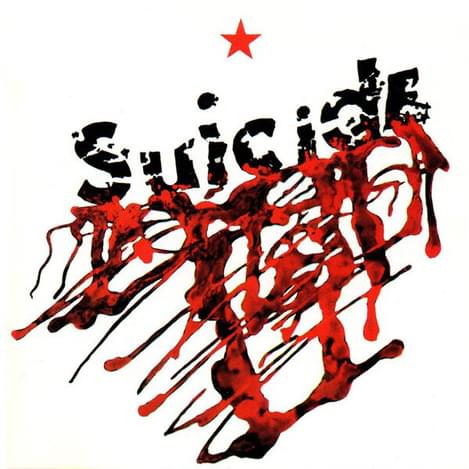Suicide's 1977 debut hasn't lost any of its elemental power
"Suicide (Reissue)"

This reissue itself is an interesting idea. At a time when every cough, belch and muttered aside tends to be dug out of the archives whenever a lavish reissue of a landmark record is assembled, Suicide presents the seven tracks from the original short, sharp half an hour shock of an album - no added ingredients (apart from previously unearthed photographs and extensive liner notes by The Quietus’ John Doran). Nothing more is needed: a portion of this size is the optimal amount to appreciate the primitive, raw and visceral MO of vocalist Alan Vega and Martin Rev on keyboards and electronics. Add later single "Dream Baby Dream" to the playlist and you effectively have a Suicide Best Of.
To the uninitiated, the frantic electronic rockabilly mutations of "Ghost Rider" offer an ideal summary and distillation of the duo's sweaty yet crudely sophisticated - a juxtaposition that makes sense in the context of these creaky grooves and drones - proto-electro stylings. As Rev layers stark yet nuanced (check out the two-note bassline) loops, Vega unleashes a cold and unsettling series of images (‘’he’s telling the truth / America is killing its youth’’), accentuated by trademark yelps, hollers and muttered asides (that went on to inspire Bruce Springsteen’s similarly stark “State Trooper”) in a stark flipside to the romantic American ideal of the open road: more doomed to run than “Born to Run”. The 10-minute psychodrama of "Frankie Teardrop" is another peak on an album that has no weak links: almost oppressively minimalist at first, the track's feverishly dispatched tale of desperation, devastation and destruction soon builds up a fearsome momentum propelled by Vega's agitated screeches: you don’t have to strain too hard to whiff the influence of this nightmarish, claustrophobic urban murder ballad on the bloodier works of Nick Cave.
If Kraftwerk's output around this time constructed a sleek high-tech Man-Machine, then Suicide is its twisted yet similarly futuristic Frankenstein twin: a clattering, subterranean racket seemingly constructed of rusty parts found lying around a scrapyard. It’s lost none of its elemental, confrontational power since its original release.
Get the Best Fit take on the week in music direct to your inbox every Friday

Bon Iver
SABLE, fABLE

Mamalarky
Hex Key

Florist
Jellywish





